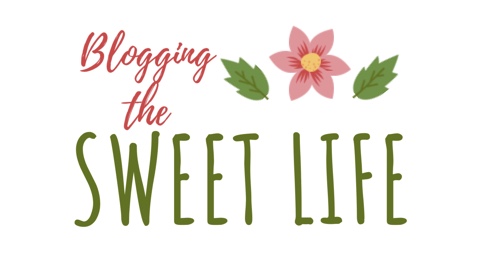Signs of Self-Harm and Depression in Children


YOU ARE NOT ALONE
I start with the words “You Are Not Alone” because often times as a parent or as a family member of a child going through any type of depression, anxiety, self-harm, we feel utterly helpless and unable to speak to anyone about the challenge of having a child who suffers from any type of mental health issue.
From a personal perspective, I know I felt shame, sorrow, guilt, and self-doubt about my abilities in raising a child. I was afraid to speak to anyone on this taboo subject that I have since come to find out happens more often than I had ever know before, yet no one is taking about it.
Signs of Depression
It’s difficult as a parent to sometimes notice your child is depressed. As they transition from grade school to middle school and up through college, the pressures begin to increase more and more. Some children seem to be un-phased by the transition and changes that happen but other’s are affected quite differently. For my part, my young one was always very quiet…sweet as pie, never gave me a hard time and was just a dream child. As she transitioned from elementary to middle school, the changes I saw became more and more apparent. I shrugged this off as her becoming an adolescent and changes due to hormones. I tried to respect that she was changing and I gave her space to allow her personality to bloom. I thought she was just going through pre-teen changes, however, I couldn’t have been more wrong.

Depression is very different than your child simply being moody or just feeling a bit down. When their emotional state begins to take a toll on their everyday life such as school, activities, eating, it could be possible that your child is depressed. Signs of depression can include the following:
- Changes in appetite
- Changes in sleep habits (too much or too little)
- Neglecting personal hygiene
- Declining grades at school
- Withdrawing from usual activities
- Mood changes such as crying, anger, irritability, anxiousness
- Difficulty focusing
- Feeling worthless
- Change in appearance such as the way they dress
- Sadness that doesn’t seem to go away
Not every child shows the same signs of depression, however, knowing your child and paying close attention to their changes is really important. Seeking family and individual counseling for your child early on is key to getting them the help they need.
Finding HELP for Children who Self-Harm
It’s like a punch in the gut, like someone reaching down into your soul and ripping your heart out to find out your child is self-harming. No one talks about this! I was floored to find out how often this is happening with children and adolescents today. From information that I have researched, both male and female children are self harming….and the sad statistics is that the percentage of children doing this is increasing. In one study I read, 17.9% of young males have admitted to harming themselves and 29.1% of young females have admitted harming themselves. The average age of children who begin self-harming is 12-14, however, this can go well into college years.
IT’S NOT YOUR FAULT! It’s hard not to blame yourself as a parent when you find out your child is self-harming. Could we have done something different or could we have said something that would have made the difference to them? There’s so many reasons why children self-harm, including:
- To feel something…because they feel numb or empty inside
- To cope with stress or anxiety
- To punish themselves for self-loathing thoughts
- Because it has become a bad habit that’s not easy to stop
It’s almost impossible to remove every sharp object from a home. Kids who self-harm will find objects or they will create them. From pins, needles, razors, disassembled pencil sharpeners, scissors…the list is regretfully extensive of the things kids use to cut. But self-harm isn’t limited to cutting. Self-harm can come in the form of hitting themselves with blunt objects to bruise themselves or using objects to burn themselves with intentionally.
Signs your child is self-harming
Looking back, I don’t know how I missed the signs honestly. Could I have gotten her help sooner? Some signs your child may be self-harming are:
- Constantly wearing long sleeves
- Wearing heavy jackets when it feels 100 degrees outside
- Never wanting to wear shorts
- Blood stains on sheets and bedding
- Finding disassembled shaving razors or pencil sharpeners
- Constantly wanting to be alone
Know this, the areas of their bodies where they self-harm is not always the same. It could be their arms, their torso, their chest, their legs, their ankles, between fingers or toes. If you suspect or know for a fact that your child is self-harming, do not assume that they are only doing this to their forearms. They become very clever and will show you their wrists, when in fact they’ve injured themselves on their upper arm or upper thighs.
Vary the time you check on your child. If they expect you always ask them in the morning or certain times of day, mix it up, because they try to hide the wounds.
After crying my eyes out to a clinician who understood the battle I faced, I was recommended to read this very helpful book to read is Helping Teens Who Cut by Michael Hollander, Ph.D.
The book really helps to give insight into the minds of children who self-harm and to understand how we can help them get through this difficult time in their lives.
Regretfully, the depression and self-harming doesn’t stop overnight. Seeking medical attention as soon as you become aware of the problem is the biggest step toward putting this terrible problem behind your family. Recite affirmations to your child EVERY DAY of how Amazing they are and let them know you love them.
There are coping skills our kids can use to help get them through some of the rough times such as creating origami, holding ice in their hands, drawing on themselves, snapping rubber-bands on their wrist. Help remind them of the coping skills given by their mental health care professionals and encourage them to do whatever is necessary to get past these impulsive urges. My heart and prayers are with every single child and family who ever has to go through this difficult time.
Have Faith! There is light and there is hope….this will pass one day.
There will be brighter days ahead.

My heart goes out to all who are battling this. Know that I and others share your story. We understand and stand with you.
I hope with all my heart this helps. If you have not already done so, please do yourself the favor of reading the book. It really helped me personally understand his mental health condition more clearly.
Please feel free to leave me your comments or thoughts.


Leave A Comment